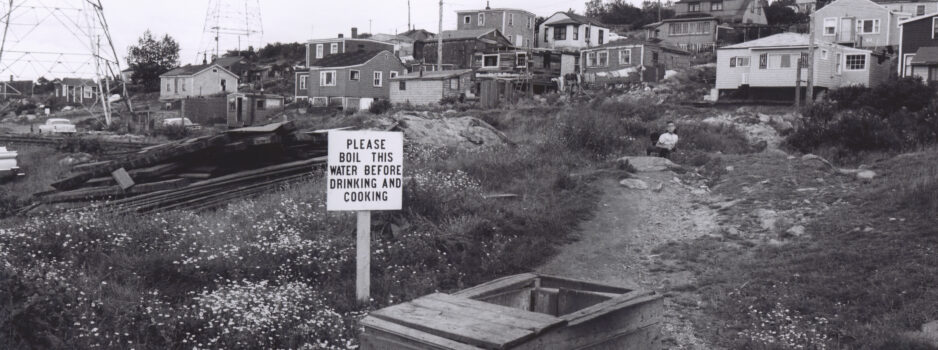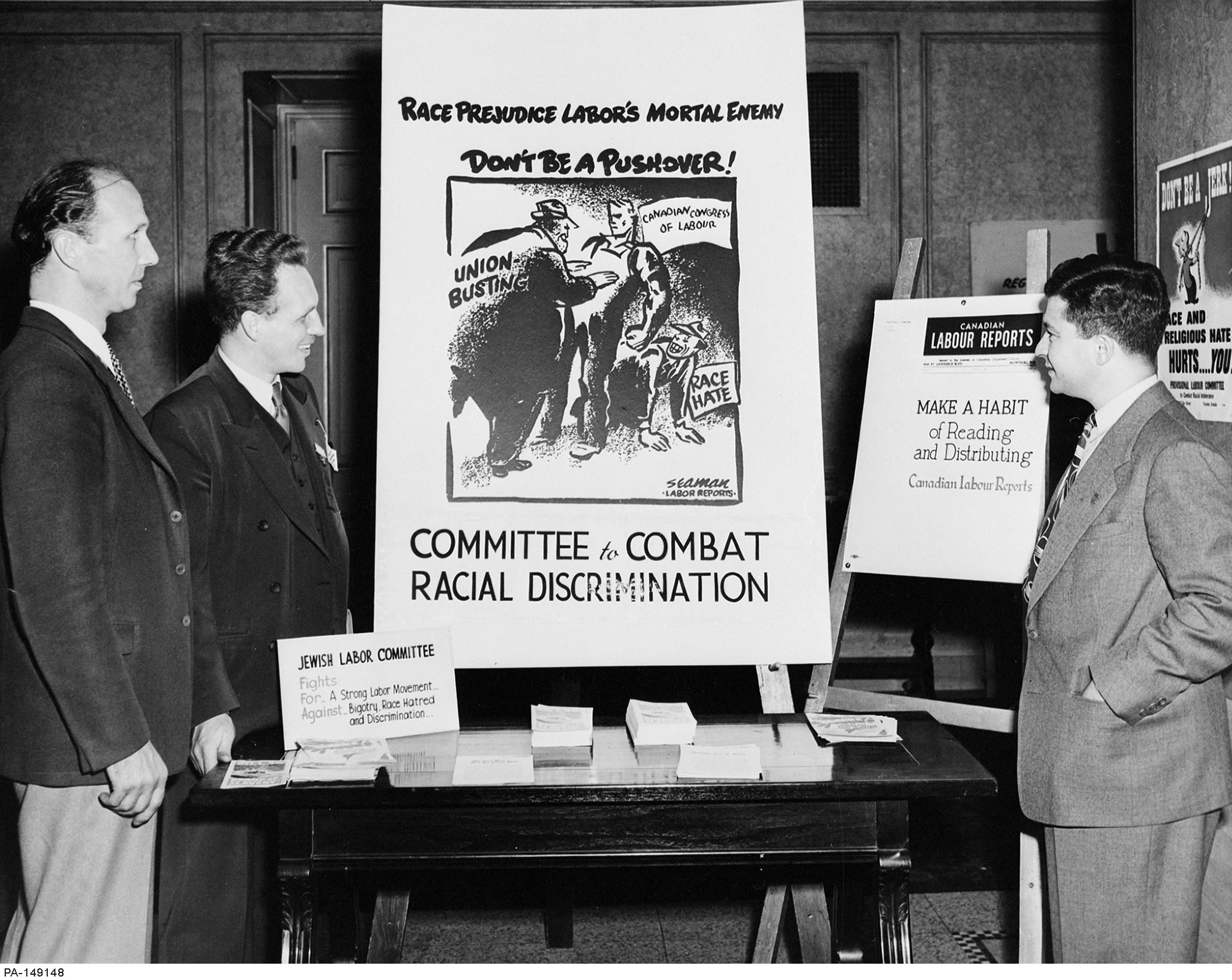Africville

| Copyright Dominique Clément / Clément Consulting
The forced relocation of African-Canadian residents from the Halifax suburb of Africville between 1964 and 1967 was, according to some people, an opportunity to improve the residents’ poor living conditions. Others saw the relocation as the destruction of a community. In either case, the relocation demonstrated that African Canadians had little influence even in their own community. In 1962, the Jewish Labour Committee dispatched Alan Borovoy to Halifax to help organized a human rights committee. A study published in the same year found that, in this Halifax suburb of several hundred African-Canadians of which there were only two white families, 35% of residents earned less than $1000 annually in wages. Six to nine people lived in the average Africville household (compared to two to three in Halfiax), and it was not unusual for a home to be without running water or public sewage disposal, requiring residents to use wells and outside toilets. Borovoy gave speeches, met with reporters in his hotel room, spoke before city council and helped create the Halifax Advisory Committee on Human Rights. The committee became an important player in winning fair compensation for the impoverished African-Canadian residents of Africville who were being forcibly relocated by the municipal government.
“The Halifax Advisory Committee on Human Rights is a volunteer, non-delegate, group consisting of residents of Africville and citizens living elsewhere in Halifax and its vicinity. The Committee was formed in August, 1962, at the invitation of several residents of Africville, to advise in matters related to an anticipated clearance of the Africville land for industrial use. The proposed Conference, while not related specifically to Africville, will be an event in accord with the Committee=s central concern for human rights.” [HAJ Wedderburn to Deputy Ministry of Welfare, 14 September 1964, LAC, RG10, Series E, Volume 288 (a)]
As James Walker explains, “The committee chair was Gus Wedderburn, president of the NSAACP and, beginning 1 March 1964, the Jewish Labour Committee’s part-time staff person in Halifax, receiving advice and submitting monthly reports to the JLC leadership. Over the next several years the committee sought to ameliorate the terms and conditions of the destruction of Africville, and, armed with the results of their testing, urged the provincial government to improve the enforcement of human rights laws. They pursued the standard tactics followed by the NSAACP since 1945, with some refinements and connections coming through the Jewish Labour Committee. For example in 1965, following repeated rebuffs from the Nova Scotian Hotel over the hiring of black personnel, the NSAACP appealed to the JLC’s national director David Orlikow in Ottawa, who spoke with the national vice-president of CN hotels and who, in turn, contacted the Halifax manager asking him to hire an African Canadian for the hotel dining room. The association continued to press its usual concerns, for greater access to employment and housing and particularly for improved educational opportunities.” [Walker in Debating Dissent]
Further Reading
James Walker, “Black Confrontation in Sixties Halifax,” in Campbell, Lara, Dominique Clément, and Greg Kealey, eds. Debating Dissent: Canada and the Sixties. Toronto: University of Toronto Press, 2011.
 Site Resources
Site Resources-
- Any use of material or referencing content from HistoryOfRights.ca should be acknowledged by the User and cited as follows:
–
- Clément, Dominique. “page title or document title.” Canada’s Human Rights History. www.HistoryOfRights.ca (date accessed).


 Encyclopaedia
Encyclopaedia 
 © 2024 COPYRIGHT CLÉMENT CONSULTING. ALL RIGHTS RESERVED.
DEPARTMENT OF SOCIOLOGY, UNIVERSITY OF ALBERTA
© 2024 COPYRIGHT CLÉMENT CONSULTING. ALL RIGHTS RESERVED.
DEPARTMENT OF SOCIOLOGY, UNIVERSITY OF ALBERTA